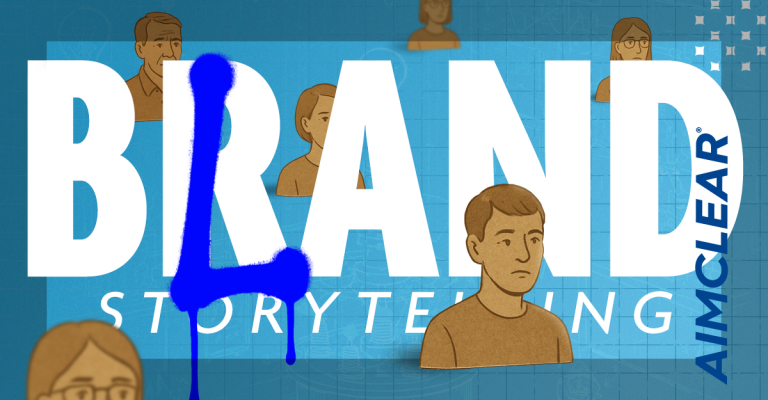AIMCLEAR is a super collaborative work environment. We love talking shop when we’re in the shop together (or logged into a team Hangout). Topics usually center around big trends and notable changes in web development, digital channels, SEO, or content. But a recent kitchen conversation among our Devs and SEOs in our Duluth, Minnesota home office took an interesting turn. We explored some of the things we WISH we were taught before finishing college and online academies to enter the workforce.
Of course, it’s unreasonable to expect colleges, in particular, to stay at the very forefront of innovations in front- and back-end development. But it is fair to expect schools to at least be near current with the technology and practices that make up our daily work and client interactions.
In this post, we’ll recap a few key highlights, but the topics discussed were all super deep. So in the weeks ahead, we plan to do some Q&A blog posts with our Devs and SEOs to expand on some of the topics below.
Let’s start with a good recap of the key points of our kitchen chat, starting with some Dev fundamentals.
Practical Programming Languages
Never underestimate the power of practical programming languages, such as PHP, Javascript, and Python. Colleges and coding schools can do their students a world of good by incorporating PHP and other practical languages more purposefully into their coursework.
PHP is a good example, because WordPress and other “standard” web development platforms rely heavily on this language. Similarly, Javascript is becoming far more common as a back-end language (not just front-end anymore).
We see many developers coming out of schools who haven’t had nearly enough practical experience with the languages that are truly the essential building blocks of web apps. The knowledge gained cuts across so many aspects of development and students really need the knowledge as a foundation to perform in the workplace.
At the same time, those institutions need to emphasize the importance of adaptability, since Dev is such a dynamic field. Good developers can learn and adapt to new languages much more easily with foundational understanding of PHP. The languages may be different, but the concepts port across languages.
Shrewd Technical Practices
As a client-based marketing and dev shop, our teams often must work within existing (and sometimes cobbled-together) technical frameworks. With the exception of a client building from the ground up or completely revamping a web presence, developers are hamstrung by existing site parameters–some of which may well be substandard.
New college grads would be well served to understand:
- Old vs New Frameworks: Developers crave unboxing the latest tools, such as Bootstrap. But they face the reality of maintaining legacy codebases from older systems. Full rip-and-replace projects allow more flexibility with a clean slate, but clients often insist on staying within their existing frameworks. Understandable, because they often have a lot of investment tied up in those systems. Schools need to strike a balance between focusing on the hottest new tech, and making sure they also prioritize older tech that will be with us for a while. It’s also a delicate dance to know when to pull the sheet over aging platforms and let older devs be the keepers of history!
- Commenting and Clean Code: Similarly, schools should prepare students to understand they will be a step in ongoing development – projects that predate their time and will likely be around for future devs to deal with. The ability to write clean commented code makes handovers and ongoing maintenance much more seamless. Those students will thank their schools down the road – as devs will make life easier for one another with this skillset.
- Backward Compatibility: Surprisingly, many schools still miss out on teaching the basics of ensuring compatibility across browsers AND versions of browsers. Certainly, they need to focus on the core of each browser, but the consensus in our kitchen chat was that backward compatibility is left for on-the-job training (usually precipitated by a compatibility “miss”).
Work Environment Realities
By nature, Devs are typically hyper-focused individuals who thrive on spending extended periods on specific tasks or projects. It’s an admirable trait that sets devs apart in the workplace.
Trouble is, the workplace is rarely structured around the Dev way of working. When that workplace is a marketing agency with a wide range of working mindsets (including ones that attract lesser-focused personas), some Devs can struggle to thrive in such settings.
Preparing for the “real” world means schools need to help students understand cross-functional interdependencies and person-to-person collaboration. Developers need the same type of communication and team skills that seem ubiquitous in business, marketing, and management programs. It’s incumbent on schools to also include nonlinear skills, such as creative, marketing, sales, account management, and project management. Some developers can face a bit of culture shock because they’ve thrived in learning settings that were more isolated and focused almost exclusively on the functions – and not enough on the total role of being a developer.
Advancing in the work environment also requires life-long learning. Sure, many developers (maybe most) are self-starters and driven to stay ahead of the technology that they love so much. However, our team discussed some missed opportunities in their respective academic journeys – particularly with regard to advanced learning beyond the code. Devs can advance even further in organizations when they expand their learning to other facets of business, such as strategy, management, leadership, and even sales & marketing.
Grab-Bag of Topics
As our kitchen conversation about topics where our colleges and academies might be falling short continued, the team also dug into some specified topics and functions. Here are a few highlights:
- User Experience & Accessibility: Crucial to the development of a successful website is the overall visitor experience. Since visit duration is a usual metric, ease of navigation contributes to the user’s desire to stick around a while after they land on the home page. Yet, the following are rarely taught in the classroom.
- Critical Thinking: Developers need to develop critical thinking, especially when integrating new tools like AI. They need to discern when AI-generated results are incorrect or inappropriate for the task at hand.
- Project Management: It would be helpful if project management skills (specifically in managing timelines, client expectations, and troubleshooting in real-world scenarios) were addressed at the college level, even while acknowledging that nothing beats on-the-job training for this skill.
- Web Accessibility: The importance of understanding ARIA (Accessible Rich Internet Applications) standards and making sites accessible to all users (e.g., screen readers) is a skill that is rarely emphasized in college, but it is essential in the real world.
- Core Web Vitals: Google’s Core Web Vitals (page load speed, interactivity, and visual stability) should be a major part of any web development curriculum, given the central role played by Google’s search algorithms.
- Project Troubleshooting: There needs to be an emphasis on troubleshooting and problem-solving skills. Graduates often lack the ability to think through issues when things go wrong, especially with complex systems. Grace under pressure cannot be underestimated, yet it is a skill not included in most technology degree curriculum.
- Software Development Lifecycle: While coding is essential, schools often miss out on teaching students about what happens from software concept to product delivery. Students would be well served to understand the actual tasks and steps so they have a better holistic understanding of the cycle – not just their discrete part of the process.
The Dev AI Beast
Our kitchen conversation could have gone on all day, particularly when our Full Stack Web Development Manager, Chase Dunbar started down the topic of artificial intelligence. To boil down this part of the conversation, here is a Top-10 list of
-
- AI-Assisted Coding: Learn to use AI-powered tools like GitHub Copilot or Tabnine, which can automatically generate code snippets, offer real-time suggestions, and help with debugging. These tools save time and improve efficiency by suggesting optimal coding patterns and reducing errors.
- Machine Learning (ML) Integration: Understanding how to build and integrate machine learning models into web applications is crucial. This skill allows developers to create smarter features, such as predictive analytics, recommendation engines, and personalized user experiences.
- Natural Language Processing (NLP): As more applications use chatbots, voice commands, and text analysis, web developers need to grasp NLP concepts. This enables them to build intelligent conversational interfaces and content analysis tools within websites.
- AI-Enhanced Automation: Mastering AI tools for automating repetitive development tasks—such as testing, deployment, QA/testing, or code optimization—boosts productivity. Developers can also automate manual processes like SEO audits or site performance tracking using AI-driven solutions.
- AI-Powered Code Review: Using AI for code review and bug detection is increasingly important. AI can identify vulnerabilities, potential performance issues, and suggest improvements, helping to ensure that the code is more secure and efficient.
- Data Analysis and AI Integration: Understanding how to integrate AI models to analyze user behavior, web traffic, and conversion data is essential. This empowers developers to make informed decisions on how to optimize website designs and features based on real-time user data.
- AI for User Experience (UX) Personalization: Leveraging AI to create personalized user journeys, such as dynamic content that adapts to individual user preferences, is becoming a core skill for web developers. This enhances engagement and keeps users on websites longer.
- Computer Vision: Learning how to apply computer vision for tasks like image recognition, user authentication, or visual searches is becoming a valuable skill for modern web applications. This skill enables developers to integrate AI-driven visual experiences into websites.
- AI in Search Engine Optimization (SEO): AI is reshaping SEO by making search engines more dynamic and responsive. Web developers must stay up to date on how AI affects search rankings and learn to optimize content for AI-driven algorithms, including voice search optimization.
- AI-Based Security Measures: With rising cyber threats, understanding AI-driven security tools that detect abnormal patterns or vulnerabilities in code and user behavior can help developers build more secure web environments, protecting users’ data and site integrity.
A new trend is emerging in colleges – particularly among business programs – to incorporate real-world applications and technologies that students will actually use on the job. These include Salesforce, Hubspot, WordPress, and other enterprise systems. Practical, job-ready skills are increasingly essential so graduates can hit the ground running.
Look for followup Q&A posts in the weeks ahead with members of our Dev and SEO teams for some deeper dives into pressing topics that require specific skills and critical thinking. Keeping ahead of the tech is part of what we do for our clients!









